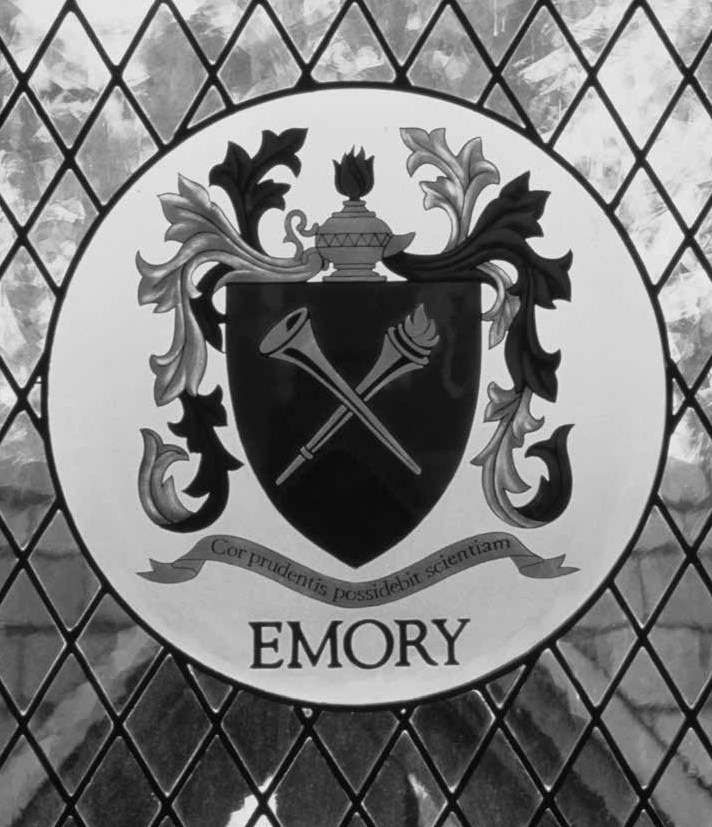The School
The School
Candler School of Theology is a professional school of Emory University and one of 13 official seminaries of The United Methodist Church. Founded by the Methodist Episcopal Church, South, in 1914, the school became part of Emory when the university was chartered in 1915, occupying the first building on the Atlanta campus.
The theology school offers programs leading to master of divinity, master of theological studies, master of religion and public life, master of religious leadership, master of theology, doctor of ministry, and doctor of theology degrees as well as a number of dual degree programs. The school also provides continuing educational opportunities for clergy, church professionals, and lay persons. Degree programs associated with the work of the theology school include dual degree programs with Emory’s Goizueta Business School, Laney Graduate School and Center for Ethics, Rollins School of Public Health, and Emory Law School, the University of Georgia School of Social Work, and the doctoral program in religion, offered through Emory’s Graduate Division of Religion.
Candler is accredited by the Association of Theological Schools in the United States and Canada, and the University Senate of The United Methodist Church.
Candler Deans
- Plato T. Durham 1914–1919
- Franklin Nutting Parker 1919–1937
- Henry Burton Trimble 1937–1953
- William Ragsdale Cannon 1953–1968
- James T. Laney 1969–1977
- James Waits 1978–1991
- R. Kevin LaGree 1991–1999
- Russell E. Richey 2000–2006
- Jan Love 2007–present
Emory University
Since 1836, Emory’s mission—to create, preserve, teach, and apply knowledge in the service of humanity—has guided the university in its work to drive discovery, serve the common good, and prepare leaders to make a difference in the world. The excellence and dedication of the faculty are why students from around the world come to Emory, where they embark on a rigorous and inclusive educational journey that transforms them into tomorrow’s leaders. Behind Emory’s fundamental commitment to providing a rigorous liberal arts education within one of the nation’s top research universities is a belief in the ardent pursuit of knowledge and its transformative power. Emory offers an academic experience where students discover a culture of open and civil discourse, develop the confidence to confront difficult questions, work closely with academic experts, and connect with a set of peers as diverse as the world around them.
Among the centers for specialized research and study at Emory are The Carter Center of Emory University, the James T. Laney School of Graduate Studies, the Emory Center for Ethics, and the Michael C. Carlos Museum. Campus-based independent affiliates include the American Academy of Religion; the Society of Biblical Literature; the Emory Center for Myth and Ritual in American Life; and the Center for the Study of Law and Religion.
Emory is expanding its international programs and opportunities to rise to the challenge of globalization. This effort underscores the university’s conviction that a liberal arts education in the twenty-first century must embrace global perspectives and enhance cross-cultural understanding. Emory is committed to training its students to pursue their professions and live their lives in a world that is fast becoming a global neighborhood. Schools within the university have strong international and global components in their curricula. A growing number of international scholars are teaching and conducting research at Emory; professors from Emory are pursuing scholarly research and service abroad, and their students gain from their experiences, insights, and broadened perspectives. The enrollment of international students is rising. Emory faculty and students are participating in Carter Center action programs in developing countries. Mutually beneficial linkage agreements with foreign universities present challenging opportunities. Substantial new funding is stimulating exciting initiatives in global education.
Candler School of Theology is accredited by the Commission on Accrediting of the Association of Theological Schools in the United States and Canada, and the following degree programs are approved: MDiv, MRL, MRPL*, MTS, ThM, DMin, and ThD (10 Summit Park Drive, Pittsburgh, PA, 15275, telephone 412.788.6510).
Emory University is accredited by the Southern Association of Colleges and Schools Commission on Colleges (SACSCOC) to award associate, baccalaureate, master’s, doctorate, and professional degrees. Questions about the accreditation of Emory University may be directed in writing to the Southern Association of Colleges and Schools Commission on Colleges at 1866 Southern Lane, Decatur, GA 30033-4097, by calling (404) 679-4500, or by using information available on SACSCOC’s website (www.sacscoc.org).


